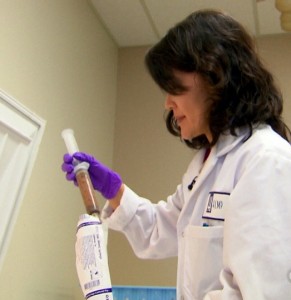 Inflammatory bowel diseases like ulcerated colitis or Crohn’s disease are extremely painful and could cause colorectal cancer.
Inflammatory bowel diseases like ulcerated colitis or Crohn’s disease are extremely painful and could cause colorectal cancer.
Researchers have now effectively cured those conditions in mice, which is offering hope for those humans who suffer from IBDs
Waste material taken from healthy people in loaded with bacteria that are helpful. When that is transferred to digestive tracts of individuals who are sick, in whom an overgrowth of bad bacteria exists, the fecal matter can help restore a healthy flora.
Scientists have also found that fecal transplants appear to reverse the autoimmune diseases in the bowel.
Ulcerative colitis and Crohn’s disease, which are IBDs, are disorders for life that cause painful cramps, bleeding and severe diarrhea.
According to medical experts, such diseases are more and more common worldwide as more people eat diets that are high in fat and low fiber.
Currently there are treatments for the conditions designed to just ease symptoms. Therefore, the idea a potential cure could be on the way is appealing.
In experiments using mice that had inflammatory bowel disease, researchers found that, a fecal transplant restored a healthy balance to the intestinal flora, which returned the intestine close to normal.
However, the thought of transferring fecal material from one individual to another – with the mice through a tube that went into the stomach – makes most people cry out “gross.”
Therefore, researchers are attempting to identify the bacteria that are helpful in human waste so it can then be put into the form of a pill.
At this point, the only way this works is through fecal transplantation since the bacterial communities are complex and it remains unknown as to what organisms are carrying out the good work. That means doctors must transplant it all and let it do its work.
